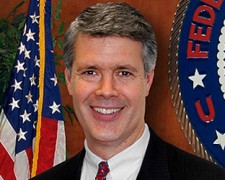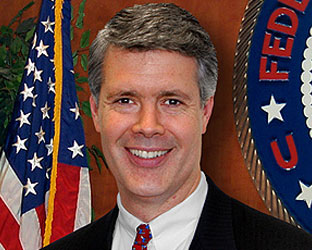 According to former FCC Commissioner Robert McDowell, when retransmission consent was codified, the authors weren’t quite sure how it would play out, and that was a good thing – the market figured it out over time, and McDowell argued in a special article in The Hill, the market should be allowed to prevail going forward.
According to former FCC Commissioner Robert McDowell, when retransmission consent was codified, the authors weren’t quite sure how it would play out, and that was a good thing – the market figured it out over time, and McDowell argued in a special article in The Hill, the market should be allowed to prevail going forward.
He said the trends are all working in favor of consumers right now, and will continue to do so if Washington plays it smart and avoids excessive meddling.
He said the most notable thing about the headline-grabbing CBS-Time Warner Cable dispute earlier in the year is the fact that it is an anomaly – most retransmission consent negotiations are concluded quietly, because it is in the best interests of both broadcasters and MVPDs to keep programming operative so they can sell advertising and subscriptions – and that is the market doing its job.
“TV stations make more money as more people see their shows, thus creating an incentive to distribute their product as widely as possible,” McDowell wrote. “These same market forces also create a disincentive for broadcasters to withhold their signals from distributors like cable and satellite companies.”
McDowell took a look back at the dawn and subsequent evolution of retransmission consent. “For years, broadcasters and cable companies didn’t exchange a dime. They chose to swap air time for ads and new channels instead. During that time, no one ever heard anything about ‘retransmission consent.’ It wasn’t until many years later that broadcasters were able to generate a new stream of cash for their content, which is watched by far more people than most cable-only channels. ‘Cable and satellite companies pay money for other cable channels and then resell them to consumers for a profit,’ broadcasters reasoned. ‘Why give away a wholesale product for which others are getting paid handsomely?’ they concluded.
He noted that an attempt by Washington to “outsmart” the open market is likely to do little more than kick the law of unintended consequences into effect. He said intervention may cause more rather than fewer blackouts; forcing broadcasters to keep programs available to an MVPD during an impasse will only delay getting to work on the core issues that led to the blackout in the first place; and any attempt at FCC arbitration will fail because the Commission simply lacks the resources to handle even a handful of such cases.
He noted finally that any effort to change the rules could implicate the rules for all kinds of creative material, a complex topic that doesn’t need to be enhanced with further complexity.





